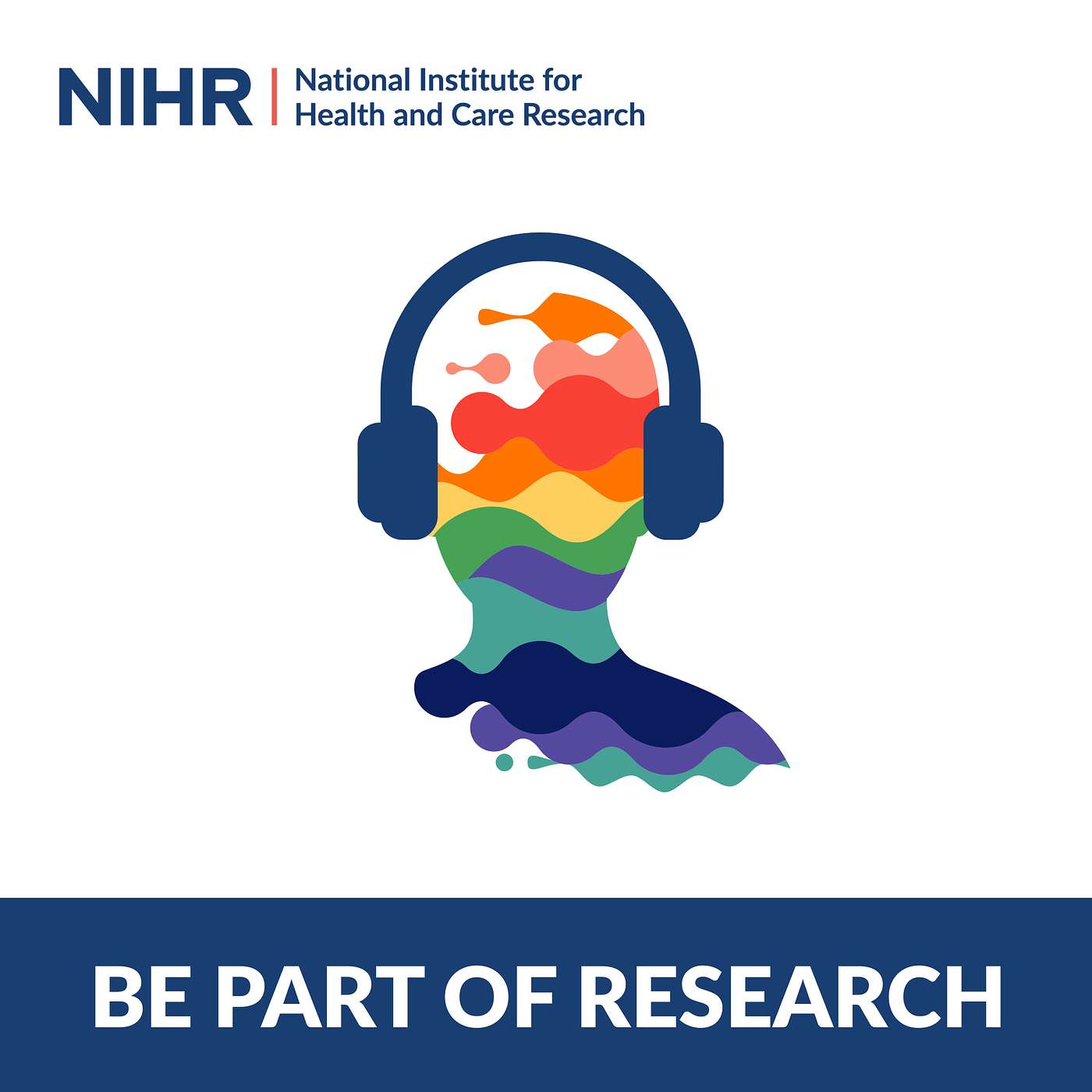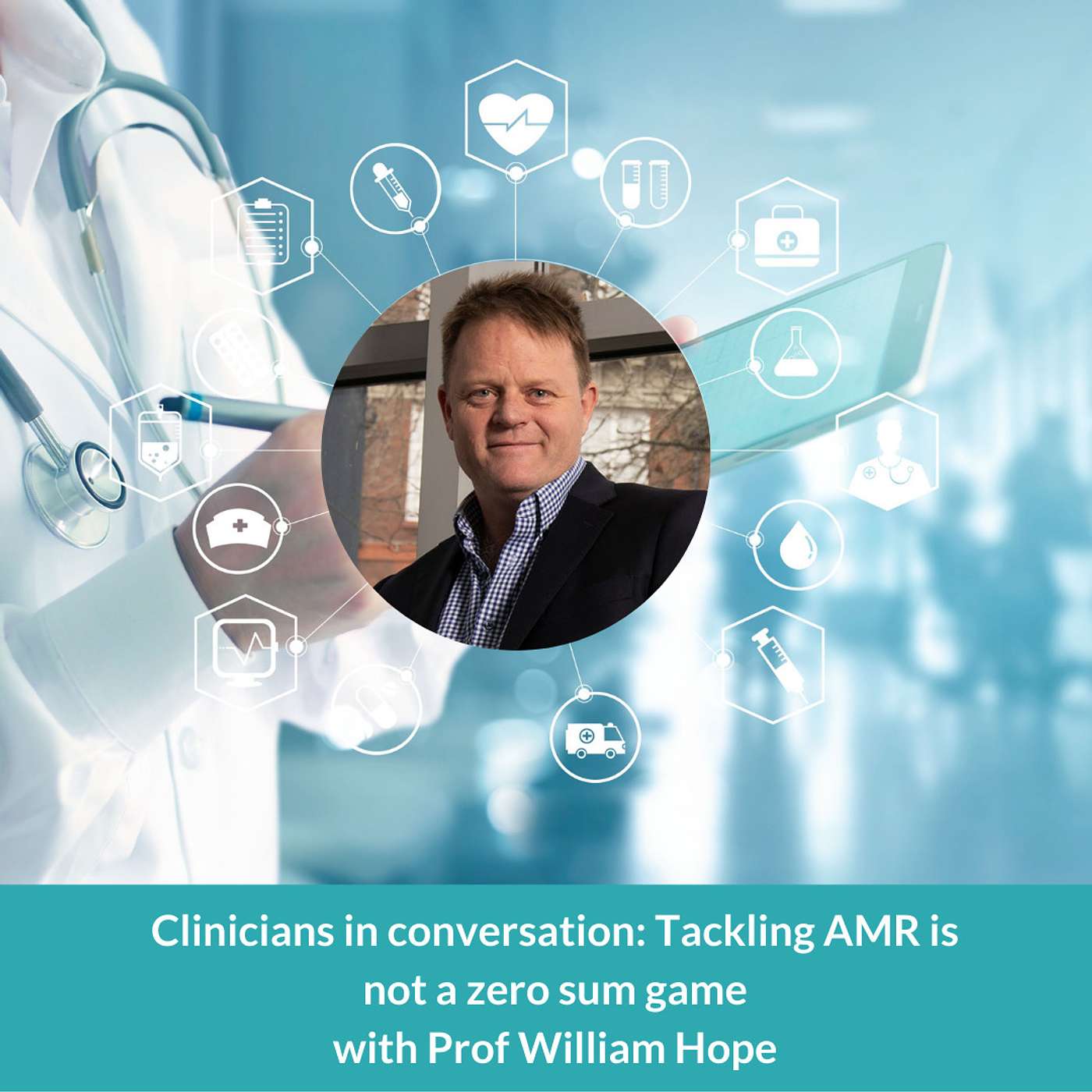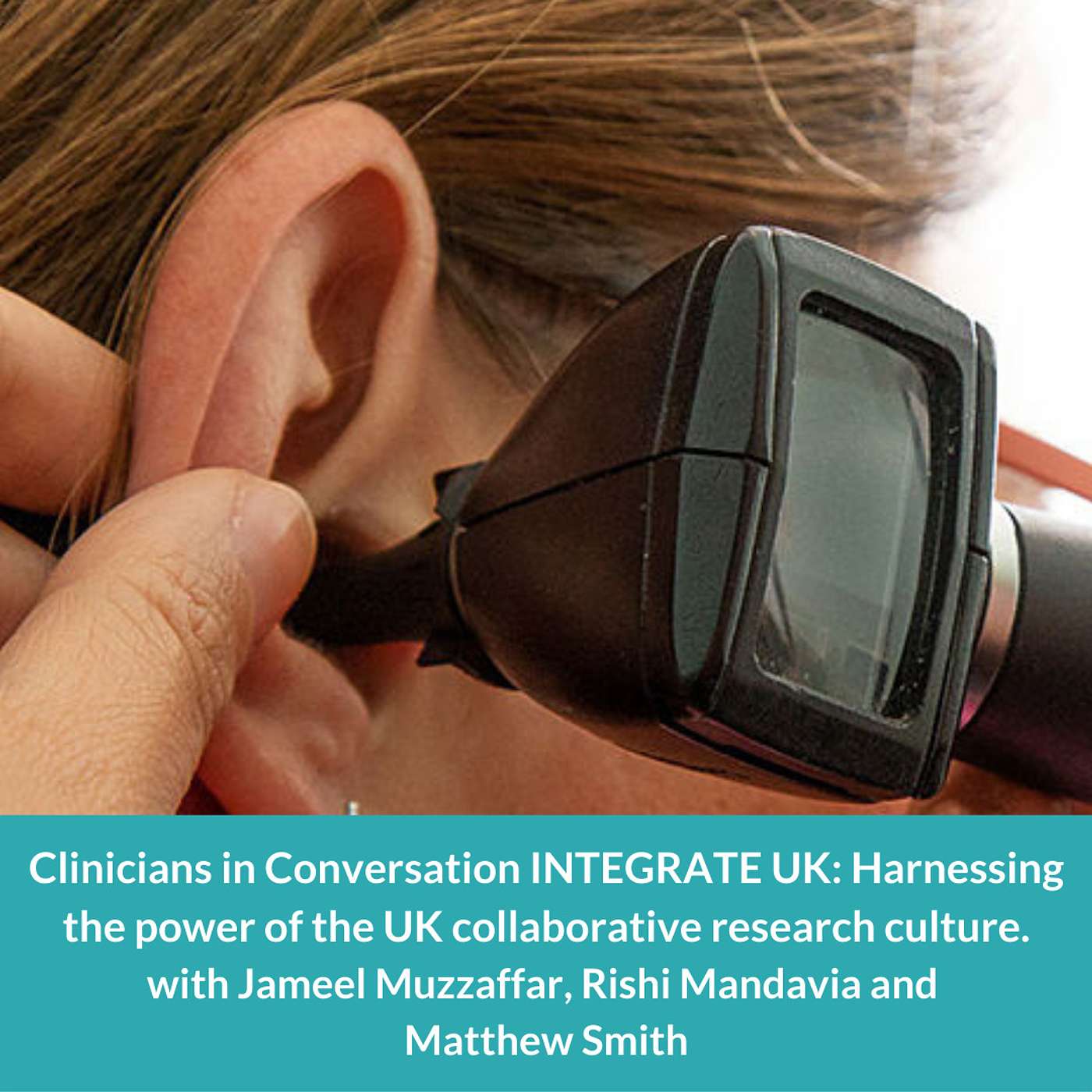Discover National Institute for Health and Care Research
National Institute for Health and Care Research

National Institute for Health and Care Research
Author: NIHR
Subscribed: 12Played: 144Subscribe
Share
© 2024 National Institute for Health and Care Research
Description
The National Institute for Health and Care Research (NIHR): funding, enabling and delivering world-class health and care research that transforms people's lives. Visit our website: www.nihr.ac.uk
52 Episodes
Reverse
This podcast explores aphasia which is a language and communication disorder usually caused by damage to the left side of the brain, most commonly after a stroke. Speech and language therapists work with patients and their carers to help them improve their speech and use alternative ways of communicating. In this episode, we talk to Dr Rebecca Palmer about a research study called Big CACTUS and what everyone learnt from taking part. Read the shownotes and the transcript.
Dementia is one of the main causes of death in the UK and it regularly makes the headlines when high profile people choose to share their diagnosis or when there are new findings of possible causes. In this episode, we talk to Professor John O’Brien who is the NIHR Speciality Lead for Dementia and Professor of Old Age Psychiatry. We explore why dementia rates are increasing, what research has found so far and what research is being done currently to improve diagnosis, treatment an...
Joining Dr Neil Hill and Reuben Lewis in this episode is Siân Rilstone - a Research Dietician at Imperial College Healthcare NHS Trust.Siân discusses the research projects she is working on, exploring how people living with diabetes can exercise safely.Siân also shares her thoughts on the importance of focussing on both diet and exercise to manage diabetes effectively, and the most impactful types of exercise.Anyone interested in taking part in research can search for studies on the Be Part o...
Denis Collen joins Dr Neil Hill and Reuben Lewis in this episode, sharing his experience of living with diabetes since his diagnosis in 2010.Denis is heavily involved in patient advocacy work. Among the many initiatives, he has worked on is a campaign to ensure all parks in Harrow, London, have an outdoor gym.He is also a strong advocate for research, talking about his role as a volunteer and why he thinks others would benefit from taking part too.Anyone interested in taking part in research ...
Digital technology is making it easier for people living with diabetes to self-manage their condition. This episode explores the cutting-edge research that has led to the advancement of these technologies, and what the future holds.Joining Dr Neil Hill and Reuben Lewis is Professor Nick Oliver - a Diabetes Consultant at Imperial College Healthcare NHS Trust, and Professor of Human Metabolism at Imperial College London. He is also a Clinical Divisional Lead at the NIHR Clinical Research Networ...
Discover the links between obesity and diabetes, and how research is helping to inform treatments and lifestyle choices for people living with diabetes.Also, find out what the future of diabetes research looks like and how to get involved.Joining Dr Neil Hill and Reuben Lewis in this episode is Dr Saira Hameed - a Consultant in Diabetes and Endocrinology at Imperial College Healthcare NHS Trust, and Honorary Clinical Senior Lecturer at Imperial College London.Anyone interested in taking part ...
In the first episode, Dr Neil Hill and Reuben Lewis go back to basics - answering the question, 'what is medical research?'Find out how trials are designed - how funding works, how volunteers are protected and what it's like to take part.Reuben shares his own personal experience of volunteering. And Dr Hill talks about the research he has worked on, including monitoring the glucose levels of people walking in the Himalayas.Also discover where diabetes research is currently at, what the future...
Professor Tariq Iqbal talks to Dr Tariq Ahmad about CLARITY IBD, the most important gastroenterology study undertaken during the recent COVID pandemic.In this episode they discuss how this pragmatic trial adopted an agile approach to rapidly answer a key question: Do common immunosuppressants used to treat Inflammatory Bowel Disease (IBD) reduce the effectiveness of COVID19 vaccines? They also explain how this study, which involves almost 7,000 participants from 92 UK hospitals, was set up an...
Collaboration and clinical research are critical in combating the global antimicrobial resistance (AMR) threat. The challenges are many but with growing recognition of this world-wide issue comes hope.In this podcast you will hear how the global research community is coming together to tackle the problem on multiple fronts by taking a much broader view on AMR. Antibiotic stewardship, vaccines, better public health and new diagnostics all have a role to play.You will also hear how ...
View the accessible transcript of this podcastIn this episode we are talking about viral hepatitis. You will hear from Professor Andrew Ustianowski, NIHR's National Specialty Co-Lead for Infection and Professor William Rosenberg, NIHR's National Specialty Lead for Hepatology. They will be taking a look at how the research environment in the UK has enabled rapid developments in the treatment of viral hepatitis with a particular focus on commercial clinical research.You can listen to all our fu...
View the accessible transcript of this podcastIn this episode you will hear from the national trainee leads for Ear, Nose and Throat (ENT); Jameel Muzzaffar, Rishi Mandavia and Matthew Smith - who is also the co-founder of the INTEGRATE UK Trainee Network. They explain how using an innovative and efficient way of working, devised in the UK, they are able to help answer key research questions in ENT with minimal resources. They showcase the SEASHELL study a national multi-center cohort study o...
View the accessible transcript of this podcastMHRA's Kirsty Wydenbach talks to Professor Allan Gaw about the different types of complex, innovative design trials (CID) which became more commonplace during the pandemic.She provides some practical advice for researchers and sponsors designing such trials and explains how they need to work with the MHRA to make their study happen. She highlights some potential pitfalls to be aware of, and emphasises the importance of planning, communication, tra...
View the accessible transcript of this podcastProfessor Pamela Kearns talks to Professor Allan Gaw about CATAYLST, a phase 2 platform trial which was designed to rapidly identify potential COVID19 treatments during the pandemic.Professor Kearns explains how the adaptive design of the trial and the Bayesian statistical approach were crucial to quickly acquire go/no go decisions on which drugs should be trialled in larger COVID19 trials like RECOVERY. She also recognises how the col...
View the accessible transcript of this podcastDr Camille Carroll talks to Professor Allan Gaw about harnessing the power of the technology in clinical trials.She describes some of the advangages of using innovative digital technologies by highlighting some of the disadvantages and challenges faced in using traditional trial assessment methods. Zooming in on wearable sensor technologies, Dr Carroll also explains the concept of ecological validity and how these innovations can help researchers ...
View the accessible transcript of this podcastThomas Jaki, Professor in Statistics at Lancaster University talks to Professor Allan Gaw about the AGILE platform trial which specifically looks at novel (new) treatments for COVID19, as opposed to repurposed treatments. Professor Jaki describes how the efficient platform approach enables investigating treatment benefit (efficacy) and dosage in parallel and explains why AGILE is a stellar example of cross-sector collaboration. He also looks to th...
View the accessible transcript of this podcast Professor Tim Maughan talks to Professor Allan Gaw about lessons learnt from delivering the world-renowned, molecularly stratified FOCUS4 platform trial He explains how this flagship trial was designed to respond to a need for a systematic approach to quickly understand which emerging, innovative cancer treatments worked against which cancers. He also describes why one of the biggest challenges was engaging life science companies. Finally h...
View the accessible transcript of this podcastDr Emma Gray talks to Professor Allan Gaw about the clinical trial platform for Multiple Sclerosis studies, known as 'Octopus'.She explains how the Multi-Arm, Multi-Stage platform trial design will help to speed up the development of novel or repurposed treatments for MS that can slow neurodegeneration and/or protect nerves from further damamge (neuroprotective). She also explains how the research team looked to the STAMPEDE prostate cancer trial ...
View the accessible transcript of this podcastDr Hugh Davies talks to Professor Allan Gaw about how research ethics approval services adpated during the pandemic to rapidly approve urgent public health research applications. As well as pointing to practical shifts, such as the switch from fewer face to face meetings to more frequent Zoom meetings, Dr Davies also describes a change of mindset. He describes how ethics panels had to revisit how they assess the benefit and risk balance when consi...
View the accessible transcript of this podcastProfessor Matt Sydes talks to Professor Allan Gaw about some of the challenges that researchers need to consider when communicating research findings to participants who have taken part in complex design trials such as a MAMS trial - multi-arm, multi-stage trial.If a multi-arm platform trial answers more than one research question, should ALL participants hear about ALL the findings? Or just the arm they participated in? Matt draws on his experien...
View the accessible transcript of this podcastProfessor Sir Munir Pirmohamed talks to Professor Allan Gaw about how the UK was able to rapidly adapt to the quest to find new treatments for COVID-19. He points to key ingredients such as the NIHR research workforce, fast-tracked funding decisions, reduced bureaucracy, collaborative research culture - all of which contributed to the UK's success. Importantly, he also recognises that none of this could have been possible without the infrastructur...
























